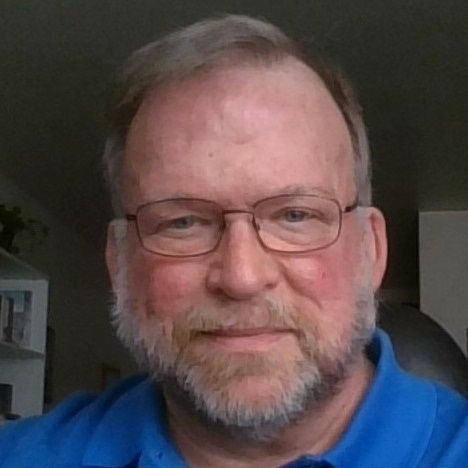Dan Keusal, M.S., LMFT
Jungian Psychotherapy for Individuals & Couples
"Find Your Purpose, Heal Your Pain, Live With Passion"
| Receive my email newsletter! |
Dan Keusal's e-newsletter
Autumn 2024 edition:
"Anxiety: is it you? or is it..."
(to get my newsletters delivered directly to your email inbox,
join my mailing list! Us the sign on box on the left side of this page)
Greetings...
Anxiety can feel personal--as in "I feel anxious, so there must be something wrong with me." But what if the anxiety you feel is, at least in part, an understandable response to an increasingly disordered and dysfunctional society? How might that change the way you see yourself, change your experience, change the type of help you seek, change the ways you respond? These are the questions I explore in this newsletter, just weeks before the election. I hope you'll find here some things that expand your perspective, that open up new paths for you to travel, and that leave you feeling a little less anxious and a little more calm, connected, grounded, and empowered.
Take good care,
~Dan
* * * * *
Reflections: “Anxiety--is it you? or is it..."
Over the last few years, my clients are increasingly asking to use parts of their sessions to talk not just about their personal problems, but about the anxiety they feel around developments in the wider world—climate change, economic disparity, racism, misogyny, attacks on their LGBTQ and trans neighbors, the threat of authoritarian politicians, the creep of artificial intelligence, the spread of misinformation, threats to online privacy, and more.
Together, we struggle with how to help them respond to forces that affect them deeply, but that can feel impersonal and beyond their control.
It was in this context that a Substack social media post from Robert Reich (former Secretary of Labor and Professor of Public Policy at the University of California, Berkeley) caught my attention. It was titled “America’s Anxiety Disorder.”
Reich began by noting two things. First, that a panel of medical experts, seeing the prevalence of anxiety in our culture, has recommended that doctors now routinely screen all patients under 65, including children and teenagers, for what is characterized in mental health terminology as “anxiety disorders.” And, second, that the current American suicide rate of 14.3 deaths per 100,000 is the highest since 1941, when America entered World War II.
After cataloguing a list of societal stressors similar to those I listed above, Reich invites the reader to consider: “Maybe the widespread anxiety and depression, along with the near record rate of suicide, should not be seen as personal disorders. Maybe they should be seen — in many cases — as rational responses to a society that’s becoming ever more disordered.” He adds that considering all that is going on in the world, “you’d be nuts if you weren’t anxious, stressed, and often depressed.”
Reich is suggesting that we start to conceive of mental health as not just addressing personal problems, but as also acknowledging and responding to the stress placed on each individual by the increasing dysfunction of society, which adds to and compounds those personal problems.
I am often moved by clients’ resilience and courage as we engage in discussions of ways to respond to both those personal stresses and to our current societal “Anxiety Disorder.” Our discussions usually include one or both of two things: personal practices, and societal engagements.
Personal practices are those things that we do each day (if at all possible; see below) to help center, calm, and ground us. Things like: journaling (not sure how to start? Try Julia Cameron’s “morning pages” exercise in The Artist’s Way), walking/running/going to the gym, gardening, yoga, reading and reflecting on an inspiring passage (like a poem, or something from a ‘thought for the day’ book), drawing/sketching/painting, meditation, spending time out in nature, crafting pottery, keeping a gratitude journal (each night, write down three things from that day for which you are grateful then review the list once a week), listening to or even making music—there are many other possibilities.
Something to remember about personal practices—anything is better than nothing; even a little bit helps. You don’t have to walk every day, for an hour. If you walk for just 10 minutes…three times a week…that’s better than walking zero minutes…zero days a week. If you sit down to journal, and write even a few sentences, twice a week, that’s two more touchstones each week than you had before.
And then there is what I’m calling “societal engagement”—finding ways to engage with the larger issues of our time that can help move you from feeling hopeless to feeling empowered.
Concerned about climate change? You might get involved with an organization dedicated to saving trees; one local example: Save Shoreline Trees https://www.saveshorelinetrees.com/. Worried about the spread of misinformation, lack of minority perspectives in media, or attempts at censorship? Try FreePress.net https://www.freepress.net/. Anxious about the upcoming election? Sit in on a meeting of Flip The Vote: https://www.flipthevote.org/.
My intention here is not to steer you toward any particular issues or organizations, but merely to “grease the wheel,” to open up possibilities. The ways that you engage will depend on your own interests and values and temperament.
And whatever form of “societal engagement” you choose, you will be taking steps to move from paralyzing inertia to action, from dispiriting isolation to connecting with kindred spirits—giving you an experience of being a part of something, of community, rather than feeling alone. And doing something, anything, to make a difference can, again, help you feel empowered which is a key dynamic in maintaining mental health.
Beneath any specific practices or engagements, the goal of therapy, and of life, is to listen for the deeper voice of the soul, which actually speaks to us through our suffering and our longing, our grief and our dreams, our stillness and our creativity and our joy. If, in the midst of all the surface screeching going on around us, we can learn to hear that deeper voice, and heed its call, and respond in thoughtful and compassionate fashion, perhaps we can find a way through our anxieties—individual and societal—and create a future of peace and hope.
Resources For A Life Of Depth And Meaning:
(photo): "Council of Elders" On a trail that I walk several times a week, I had passed by these trees dozens of times before I really noticed them, a semi-circle of a unique kind of wisdom--rooted and reaching, taking in and putting back out, simultaneously inhabiting moments and decades. When I finally did notice, I stopped to take this photo with my phone--another moment of what I've come to call 'everyday enchantment,' another reminder that beauty and wisdom and hope are always there...if we are just paying attention. (Click on the photo to download a copy for your own enjoyment).
Dan Keusal, M.S., LMFT, Psychotherapist. (206) 523-1340. Email: dankeusal@dankeusal.com

